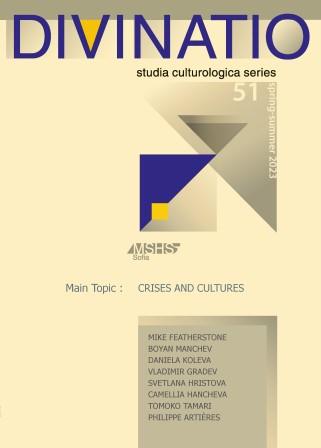Culture and Crisis: Some reflections on the consequences of national, consumer and digital formation processes
Culture and Crisis: Some reflections on the consequences of national, consumer and digital formation processes
Author(s): Mike FeatherstoneSubject(s): Philosophy, Ethics / Practical Philosophy, Political Philosophy, Social Philosophy
Published by: Maison des Sciences de l’Homme et de la Société (Sofia)
Summary/Abstract: Today, the crisis vocabulary punctuates our lives inside and outside the academy. For some, culture no longer can fulfil the expectations of coherence and consistency of conduct, that purportedly guide our lives. For others culture no longer does the expected work to drive the economy or integrate social life. This paper argues it could be more productive to address these issues by focusing on cultural formation processes. A number of distinctive but overlapping areas that exist in tension, with shifting influences over time. Firstly, state formation processes: the project to build a national culture involving a distinctive set of civic rituals, symbolic apparatus and dispositions. Secondly, the formation of a consumer culture deriving from a globalizing enterprise economy that stimulated the demand for new goods and experiences. Today we are witnessing the consequences of this economy, with the accumulation of waste, environmental destruction and global heating. This calls for both the rethinking of the nature-culture relationship and the human exploitation that occurred within colonial modernity. It therefore becomes possible to refer to the double crisis of both nation-state and consumer cultures, which interpenetrate and are exacerbated through the unintended consequences of globalization and modernity. The capacity to address and theorise these crises both inside and outside the academy increasingly depends upon a communicative apparatus based upon digital technologies and platform capitalism. The effects of this new dominant means of communication, upon our capacity to deal with culture, then, is the third major area to be addressed. Finally, the fourth main question is the consequences of this technological communicative apparatus for a deliberative public sphere and active citizenship. Do we need to develop new forms of digital media literacy?
Journal: Divinatio
- Issue Year: 2023
- Issue No: 51
- Page Range: 15-59
- Page Count: 45
- Language: English
- Content File-PDF

